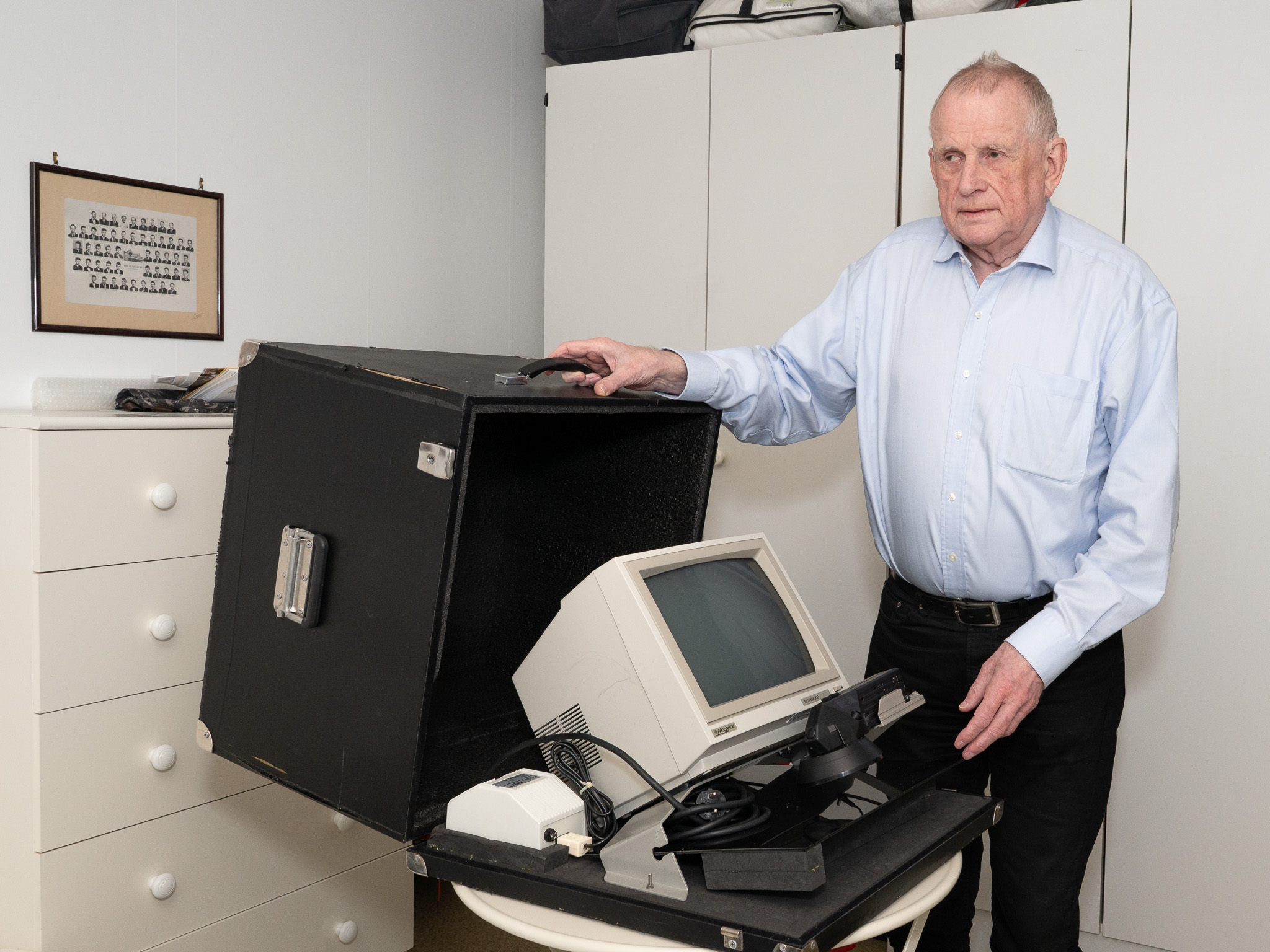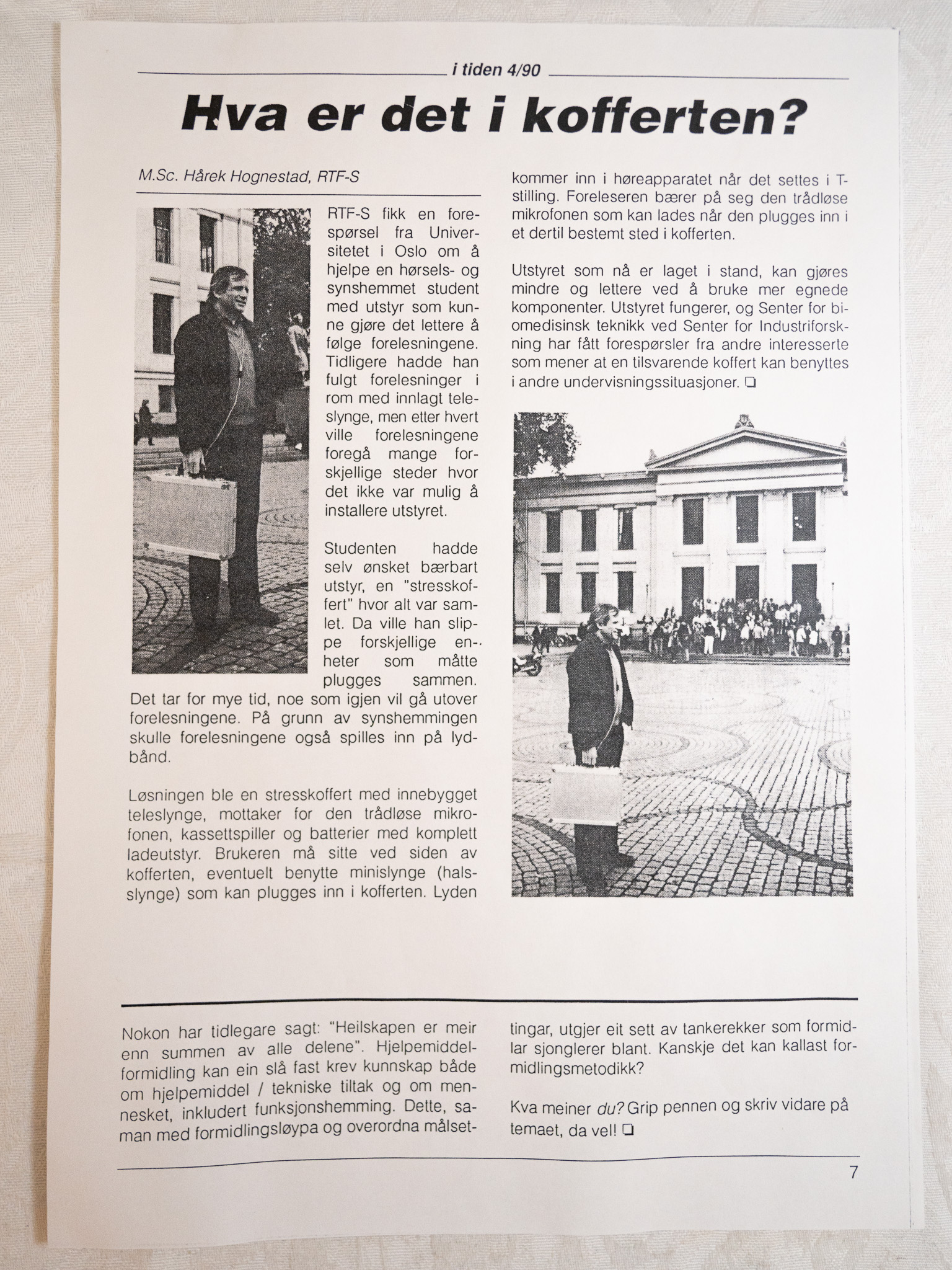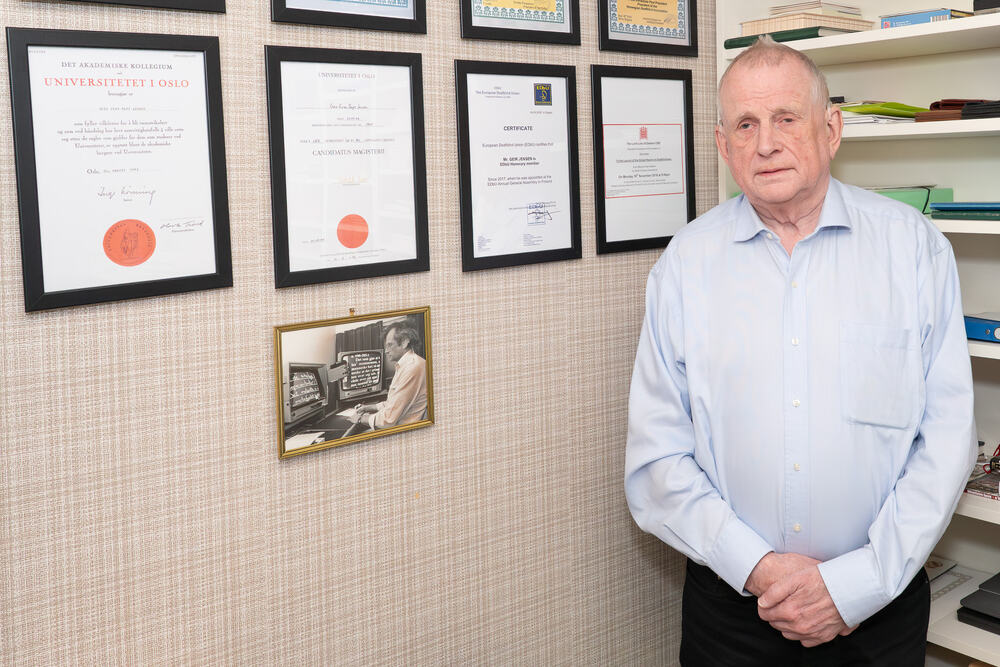30 years in the service of the deafblind
When Geir Jensen retired at age 81, he could look back on three decades of national and international work in the field of deafblindness. He started his working life as an electricity distribution fitter and worked in the profession until 1980. He was forced to find a new career path when his vision deteriorated owing to the hereditary retinal disease Retinitis Pigmentosa, which he had since birth. He chose to study law and obtained the Norwegian equivalent of a Master of Law degree.
The path to advocacy work
While studying at the University of Oslo, Geir used specially adapted equipment to follow the lectures. One of the aids he used was a portable briefcase that enabled him to record lectures on cassette tapes via FM broadcasts. A computer with a screen reader and a specially adapted keyboard also helped him navigate the subject matter.
He graduated in 1995 and in the same year was elected as chairman of the Norwegian Association of the Deafblind (FNDB). The following year he was also employed as a policy consultant for the association, a role he combined with the chairmanship until he retired in 2024.
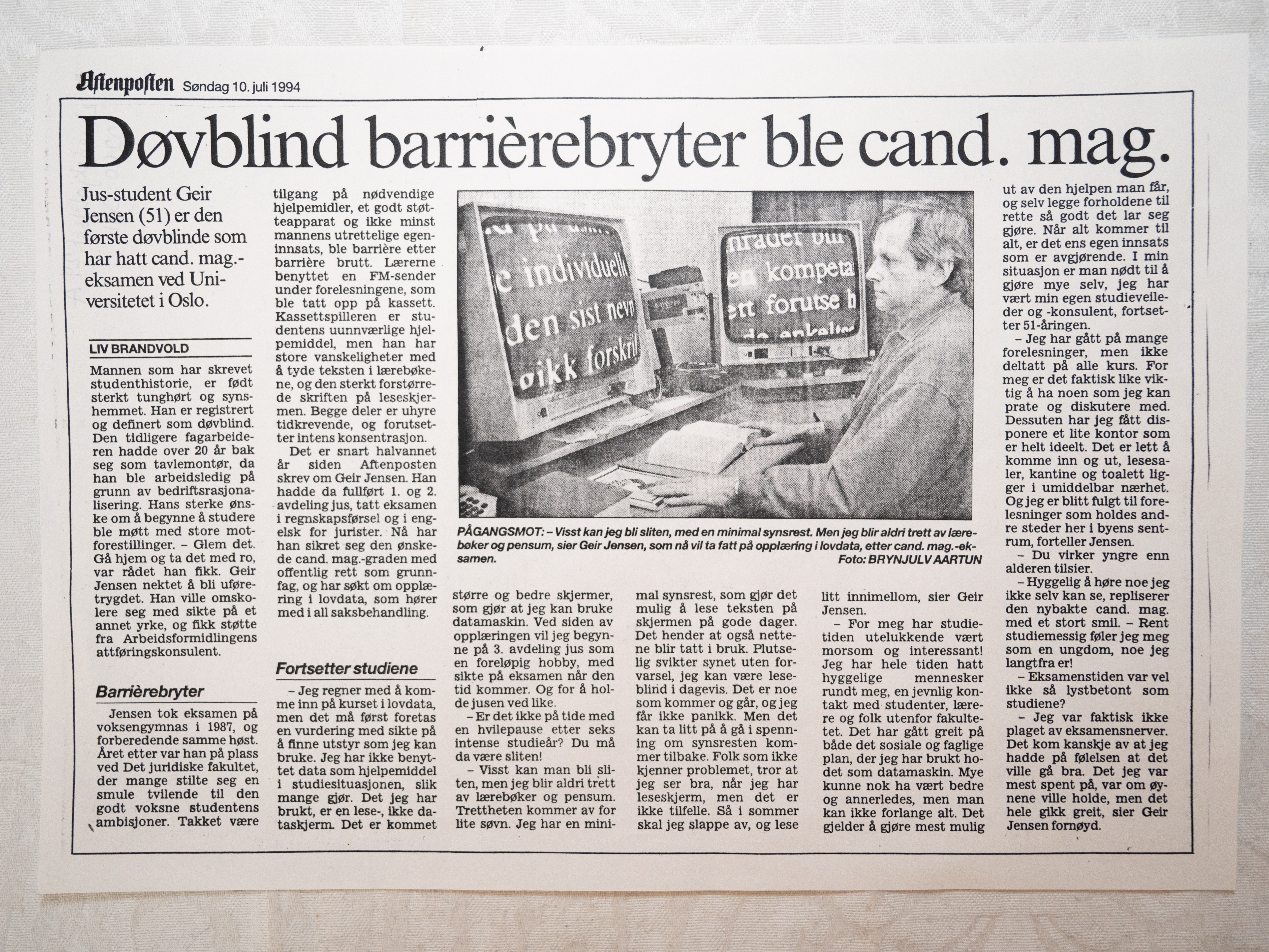
Fought for full funding of interpreting services
Geir’s motivation for working in the same role for 30 years was his strong desire to strengthen the rights the deafblind and ensure better services and provisions for this group.
He and the FNDB played a key role in deafblindness being recognized as a separate disability.
Geir lists fighting for interpreting services for people with deafblindness as one of the issues he fought hardest for. “We worked for many years to ensure full funding of interpreting services. In 2001, we managed to achieve an important change that expanded the service.”
He adds that this was the result of countless meetings with ministries and other decision-makers. The change Geir refers to involve the expansion of the interpreting services offered by the Norwegian Labour and Welfare Administration (NAV) to serve a broader range of needs. These included sign language interpreting, written interpreting and interpreting and companion services specially adapted to people with deafblindness.
– Securing these rights was one of our most important battles,” says Geir.
International involvement
Geir has had central roles in several national and international organisations. Internationally, he served as Secretary General of the European Deafblind Union (EDbU) and President of the World Federation of the Deafblind (WFDB). As president, he was also a board member of the International Disability Alliance (IDA). This involved several meetings at the United Nations, including conversations with the Deputy Secretary-General of the UN.
– International work plays an important part in better understanding the situation here in Norway. I have learned a lot from this and have had the opportunity to share our knowledge, which I believe has been very valuable, says Geir.

His sporting interest took him around the world
His interest in sport has also taken Geir to various parts of the world. He has competed at the World Deafblind Chess Championship, two European championships and six Nordic championships. In 2005, he became the Nordic champion. He has also won a silver and bronze medal at the Nordic championship.
Furthermore, he has participated in the popular Holmenkollstafetten relay event in Oslo six times, including as a 74-year-old.
Resuming his genealogy research
This report is based on interviews with Geir at his home in Oslo and during his trip to Tromsø. He and two interpreters travelled to Tromsø to continue Geir’s research into the forced evacuation that he and his family were ordered to undergo during the Second World War.
Geir started this research in the 1990s but needed to put it on hold owing to a lack of time and because he became completely blind during that period.
– I hope to find information about the forced evacuation of my family and I from the Austbø farm in Masjok in Tana municipality to Tromsø. It would be incredibly exciting to find documents about compensation and how our family got a house after everything was burned down by the Germans during their retreat from Northern Norway.
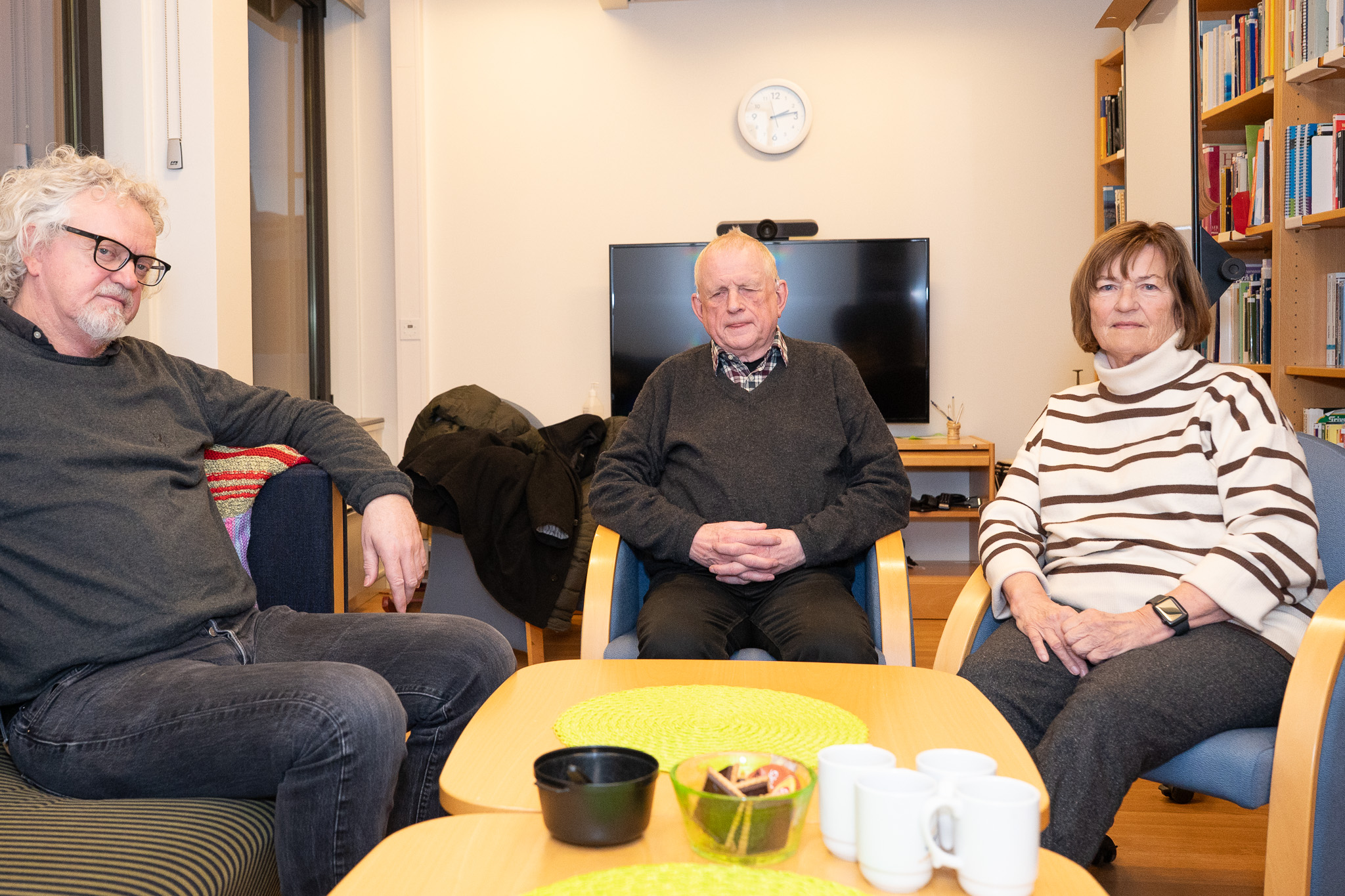
The fight for equal rights continues
Looking back on his career, Geir says that he and the FNDB have contributed to a several changes, but a lot of work remains in the fight for equal rights for all.
Geir concludes by emphasizing the importance of togetherness and cooperation.
– No one can do this alone. Organisations and communities enable us to truly achieve change.
More photos

